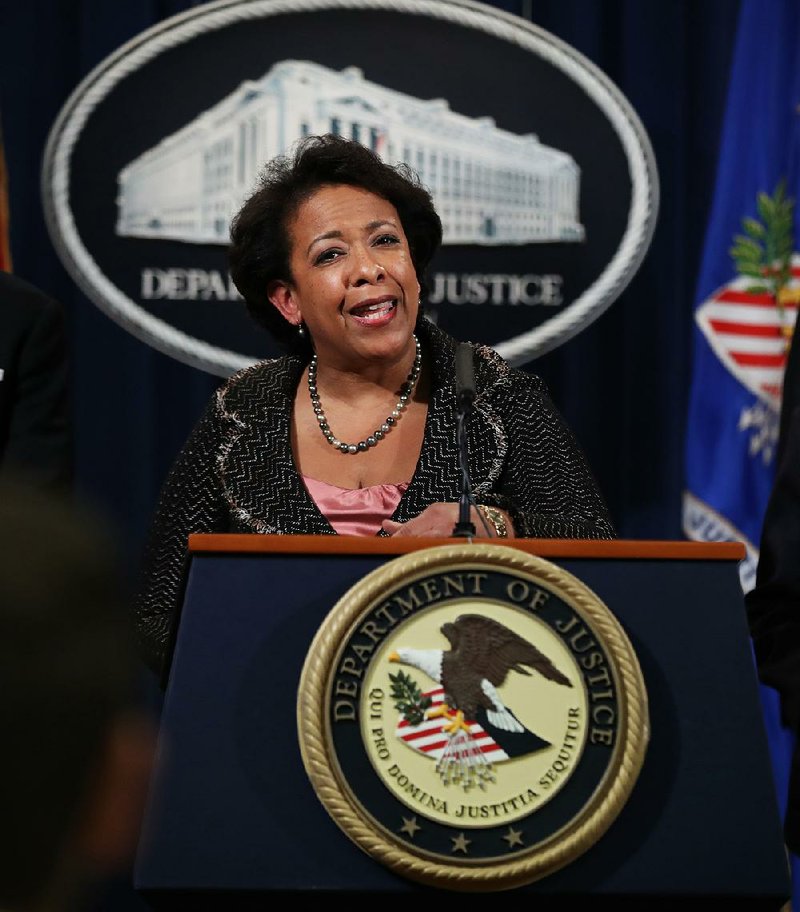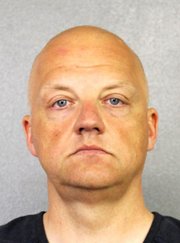WASHINGTON -- Six high-level Volkswagen employees from Germany were indicted in the U.S. on Wednesday in Volkswagen's emissions-cheating scandal, and the company agreed to plead guilty to criminal charges and pay $4.3 billion -- by far the biggest fine ever levied by the government against an automaker.
In announcing the charges and the plea bargain, Justice Department prosecutors detailed an elaborate scheme inside the German automaker to commit fraud and then cover it up. Prosecutors allege that at least 40 employees were involved in destroying evidence.
"Volkswagen obfuscated, they denied and they ultimately lied," Attorney General Loretta Lynch said.
Prosecutors may have trouble getting the executives to trial in the U.S. because German law generally bars extradition of the country's citizens except within the European Union. Privately, Justice Department officials expressed little optimism that five of the Volkswagen executives will be arrested, unless they surrender or travel outside Germany.
Still, the criminal charges are a substantial step for the U.S. Justice Department that has been under pressure to hold individuals accountable for corporate misdeeds ever since the 2008 financial crisis.
"We can't put companies in jail, but we can hold employees accountable, and we can force companies to pay hefty fines," said Andrew McCabe, deputy director of the FBI.
"This case is a great example of the fact that no corporation is too big, no corporation is too global, and no person is beyond the law," he said.
Lynch held out the possibility of charges against more high-ranking Volkswagen executives. "We will continue to pursue the individuals responsible for orchestrating this damaging conspiracy," she said.
Volkswagen admitted installing software in diesel engines on nearly 600,000 Volkswagen, Porsche and Audi vehicles in the U.S. that activated pollution controls during government tests and switched them off when the tests ended. The software allowed the cars to emit harmful nitrogen oxide at up to 40 times the legal limit.
U.S. regulators confronted Volkswagen about the software after university researchers discovered differences in testing and regular driving emissions. Volkswagen at first denied the use of the "defeat device" but admitted to it in September 2015.
Even after that admission, prosecutors said, company employees were busy deleting computer files and other evidence.
The fines easily eclipse the $1.2 billion penalty levied against Toyota in 2014 over unintended acceleration in its cars. Volkswagen also agreed to pay an additional $154 million to California for violating its clean-air laws.
The penalties raise the cost of the scandal to Volkswagen in the United States to nearly $20 billion, not counting lost sales and damage to the automaker's reputation.
The company pleaded guilty to conspiracy, obstruction of justice and importing vehicles by using false statements. Under the agreement, the company must cooperate in the continuing investigation and let an independent monitor oversee its compliance for three years.
The six supervisors indicted by a federal grand jury in Detroit were accused of lying to environmental regulators or destroying computer files containing evidence.
All six are German citizens, and five remained in Germany. The only one under arrest is Oliver Schmidt, who was seized in Miami during the weekend.
Schmidt was in charge of Volkswagen's compliance with U.S. environmental regulations. Those indicted also included two former chiefs of Volkswagen engine development, and the former head of quality management and product safety. Prosecutors said one supervised 10,000 employees.
All six were charged with conspiracy to defraud the U.S. by making false statements to regulators and the public. Three were also charged with fraud and clean-air violations.
Government documents say one engine development supervisor asked an assistant to search another supervisor's office for a hard drive that contained emails between them. Then another assistant was asked to throw it away, prosecutors said.
According to the plea agreement, Volkswagen officials began deceiving the Environmental Protection Agency and other regulators starting in 2006, when they realized that new diesel engines wouldn't meet 2007 emissions standards.
Under the direction of supervisors, Volkswagen employees borrowed the defeat-device idea from Volkswagen's Audi luxury division, which was developing different engines with similar software.
In November 2006, some employees raised objections to the defeat device to the head of Volkswagen-brand engine development, prosecutors said. That official reportedly directed the employees to continue and warned them "not to get caught."
Dozens of Volkswagen officials in Germany have hired U.S. criminal-defense lawyers over the past several months as the Justice Department intensified its investigation, Bloomberg News reported last month. U.S. authorities have traveled to Germany to arrange interviews with managers and seek cooperation.
Volkswagen has suspended or pushed out about a dozen executives in the aftermath of the scandal, including former Chief Executive Officer Martin Winterkorn, who has denied any knowledge of the cheating.
Volkswagen has been making strides to wrap up other outstanding lawsuits in the U.S. On Friday, the EPA and California regulators gave their first approval to a plan to fix some of the cars. A San Francisco judge has approved a $14.7 billion settlement that requires the company to fix or buy back about 480,000 of the cars in the U.S. that have 2.0-liter engines. Volkswagen is awaiting approval on a $1 billion deal concerning 3.0-liter engines.
Information for this article was contributed by Michael Biesecker, Tom Krisher, David McHugh and Dee-Ann Durbin of The Associated Press; by HirokoTabuchi, Jack Ewing and Matt Apuzzo of The New York Times; and by Tom Schoenberg, Christoph Rauwald and David McLaughlin of Bloomberg News.
A Section on 01/12/2017

